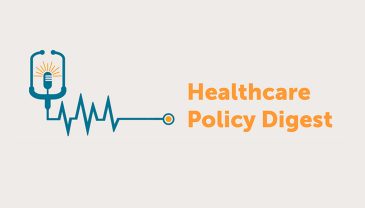

Musculoskeletal conditions (MSK) are common worldwide, and their impact on individuals is diverse. To address the importance of MSK issues, the World Health Organization is hosting a webinar series for January 31 and February 28. This series aims to initiate early discussions and involve key stakeholders in addressing this critical matter, paving the way for further attention and awareness.
The webinar will be hosted through Zoom:
Webinar 1 (31 January 2024): https://who.zoom.us/webinar/register/WN_y3PPaLoCRPezk638-QN0Dg
Webinar 2 (28 February 2024) : https://who.zoom.us/webinar/register/WN_2wrG0cLpSUyPMBwGi4I9ng
The event will be conducted in English. Closed captioning will be available.
Provisional agenda:
Pre-meeting webinar 1: Addressing musculoskeletal conditions: an opportunity for health systems globally
31 January 2024 Time: 12:00–13:00 (CET)
12:00 | Welcome and opening remarks | Antony Duttine
12:10 | An overview of the MSK series | Lyn March
12:25 | Global, regional, and national burden of musculoskeletal disorders, 1990–2020, and projections to 2050: an overall analysis of the Global burden of disease Study 2021 | Liane Ong
12:40 | Implications of the series findings for global health | Alarcos Cieza
12:50 | Discussion | Karsten Dreinhöfer
12:55 | Wrap-up of webinar 1
——-
Pre-meeting webinar 2: Addressing musculoskeletal conditions: an opportunity for health systems globally
28 February 2024 Time: 12:00–13:00 (CET)
12:00 | Welcome and opening remarks | Alarcos Cieza
12:05 | Recap of the first webinar | Deborah Kopansky-Giles
12:15 | Approaches to the management of MSK | Tony Woolf
12:35 | Key themes emerging – MSK political agenda, service delivery/health systems response | Neil Betteridge
12:45 | Announcement of the first global meeting on MSK | Antony Duttine
12:50 | Q&A | Karsten Dreinhöfer
12:55 | Wrap-up of webinar 2
Background:
Musculoskeletal (MSK) conditions are common throughout the world and their impact on individuals is diverse and manifold. In 2019, MSK conditions, such as back and neck pain, osteoporosis, contributed to 17% of all Years lived with disability (YLD) globally across the life course1 and accounted for the largest proportion of need for rehabilitation compared to other health conditions.2 The high prevalence of MSK conditions not only has implications for populations but for countries’ health systems too. In some high-income countries, the highest health care costs by condition group are attributable to MSK conditions.3 In low- and middle-income countries, the epidemiological profile is shifting to encompass a greater relative prevalence of MSK conditions amongst populations.
The burden of musculoskeletal health issues is intimately connected to primary care. MSK conditions, which affect a significant portion of the population, often lead to chronic pain and disability. Primary care serves as the frontline for early detection, diagnosis, and management for many of these conditions, providing guidance on pain management and referrals to specialists when needed for more complex progressive conditions. By effectively managing musculoskeletal health in primary care, we can reduce individual suffering and the societal burden, including health care costs and lost productivity, associated with these prevalent conditions. WHO’s Rehabilitation 2030 initiative identifies 10 areas for action to address unmet rehabilitation needs, such as strengthening leadership, workforce development, and integration into Universal health coverage (UHC).4 Tools like the Package of interventions for rehabilitation (PIR) complement guides like the Rehabilitation in health systems: guide for action and the Rehabilitation competency framework, aiding ministries of health and other stakeholders in planning, budgeting, and integrating rehabilitation into their health systems for health conditions like musculoskeletal health.
Given the high prevalence of MSK conditions, health systems need to be equipped to anticipate, prepare, and respond to the needs of people living with these conditions. Addressing MSK conditions timely and appropriately will result in improved health and well-being for populations and it will promote the efficient use of health system resources. Such action is pertinent to achieving Sustainable Development Goal 3, “To ensure healthy lives and promote well-being for all at all ages”.










 Apr 30, 2024
Apr 30, 2024 

 416-585-7902
416-585-7902